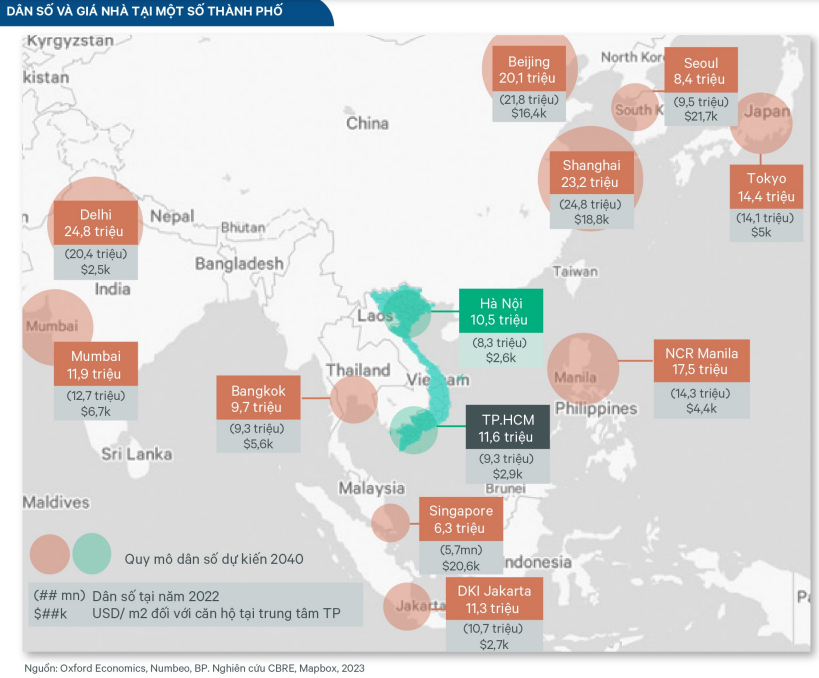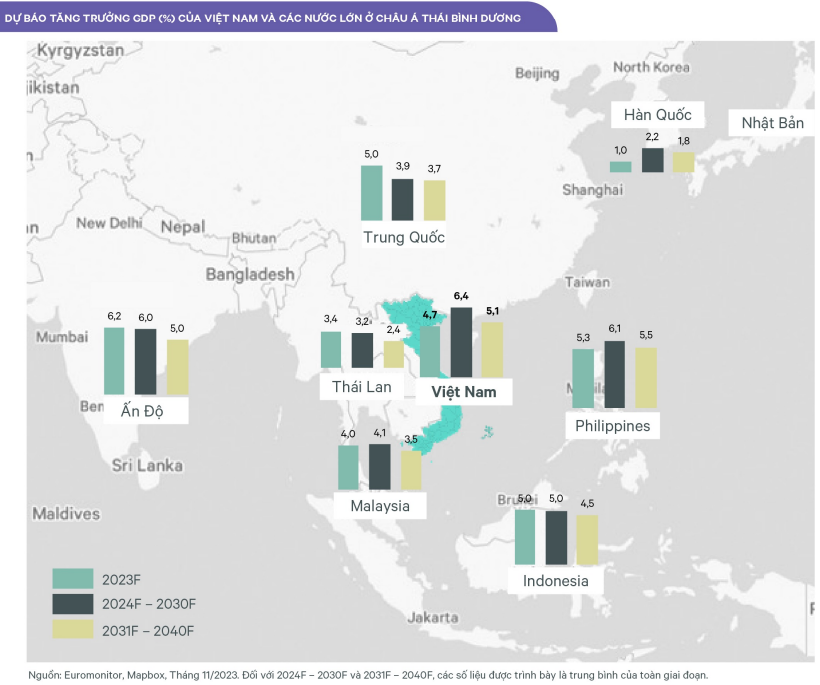The main factors supporting the growth of the market and shaping development trends in the coming years include:
Strong demand for pre-built homes in the context of strong economic growth and high urbanization rates: Rapid urbanization and increasing income will reinforce the sustainable demand for professionally developed real estate.
The shift of real estate development to new areas: Land scarcity in urban areas, along with improvements in infrastructure, will drive the expansion of residential development to new areas.
Travel trends influencing the design and form of real estate: Increasing use of public transportation will drive the development of projects based on transportation infrastructure linked to important infrastructure projects, while also increasing the prices of residential projects near metro stations. The increasing ownership of automobiles will also require more high-quality parking facilities.
The future of people’s lives: The market is ready to undergo development in the types and functions of housing, driven by diverse and changing preferences of buyers.
Population growth strengthening housing demand in the future
In addition to the above supporting factors, the sustainable population scale of Vietnam will also reinforce the housing demand.
Stable population growth is the key factor supporting the growth of the housing market in Vietnam. Hanoi and Ho Chi Minh City are expected to experience a 1.2% annual growth rate from 2021-2040. By the end of this period, the population of these two major cities will surpass that of Bangkok and Seoul, eventually reaching the level of super cities like Jakarta. Compared to other cities in the region, Hanoi and Ho Chi Minh City have relatively competitive residential real estate prices, indicating the growth potential of this market.
In addition, Vietnam continues to urbanize at a rapid pace. Oxford Economics predicts that Vietnam’s urban population will account for 51% of the total population by 2040, a significant increase from the current 38%. This demonstrates the rapid transition towards urban life and emphasizes the increasing importance of urban areas in the demographic context of Vietnam.
The combination of population growth, urbanization, and competitive housing prices in Hanoi and Ho Chi Minh City will provide a solid foundation for long-term growth of the housing market in these cities and nationwide.
Pre-built homes will experience strong development in the next 15-20 years
While population growth is the key factor supporting the growth of the housing market, economic growth will be the main driver for pre-built housing products.
Vietnam is projected to maintain its position among the fastest-growing economies in the Asia-Pacific region. Data from Euromonitor shows that Vietnam’s GDP will grow at a rate of 6-6.7% per year from 2024-2030, and maintain a growth rate of 5-5.5% per year from 2031-2040.














